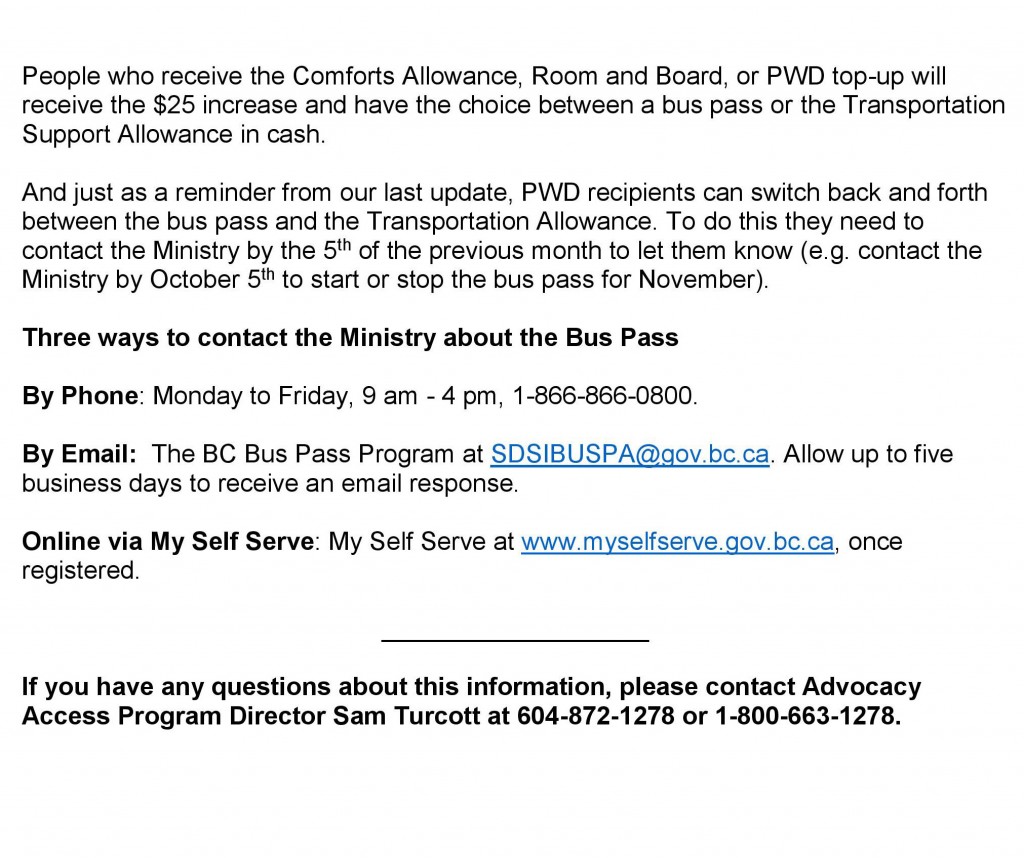Community Update: Changes to PWD application process
Dear Community Partner,
Beginning September 2016, new measures will be introduced which will make it easier for some people to apply for the Persons with Disabilities (PWD) designation:
Streamlined Application Process for Prescribed Classes
Individuals enrolled in the following programs:
– BC Pharma Care Plan P (Palliative Care Benefits);
– Ministry of Children and Family Development At Home Program;
– Community Living British Columbia (CLBC) Programs; and
– Canada Pension Plan Disability Benefits;
Will be able to apply for the PWD designation using a 2 page form instead of the current 28 page application. The process for applicants will be as follows:
– Individuals applying for the PWD designation as a member of a prescribed class will self-identify as belonging to a prescribed class during the Self-Serve Assessment and Application;
– The applicant will then proceed through the intake process and as part of the intake package of documents, they will be given the PWD Designation – Prescribed Class Application to complete in lieu of the 28 page PWD application;
– The applicant will select the applicable prescribed class and be required to provide the Ministry with the consent to contact the specified agency to verify eligibility;
– Upon confirmation of eligibility for PWD designation under a prescribed class the Ministry will send the individual an approval letter
– If the applicant is found to be ineligible for PWD designation under a prescribed class the applicant will have the right to request a reconsideration of the decision or they may choose to submit a standard PWD application
Individuals applying for the PWD designation who do not fall within one of the prescribed classes will still be required to complete a standard 28 page PWD application.
New Role for Nurse Practitioners in the PWD Application Process
In addition, nurse practitioners will be allowed to complete section 2 of the PWD Designation Application, which previously could only be completed by a medical doctor. Nurses already have the authority to complete section 3 of the PWD Designation Application and this change will allow them to assist their patients with either or both sections of the application.
___________________
If you have any questions about this information, please contact Advocacy Access Program Director Sam Turcott at 604-872-1278 or 1-800-663-1278.








